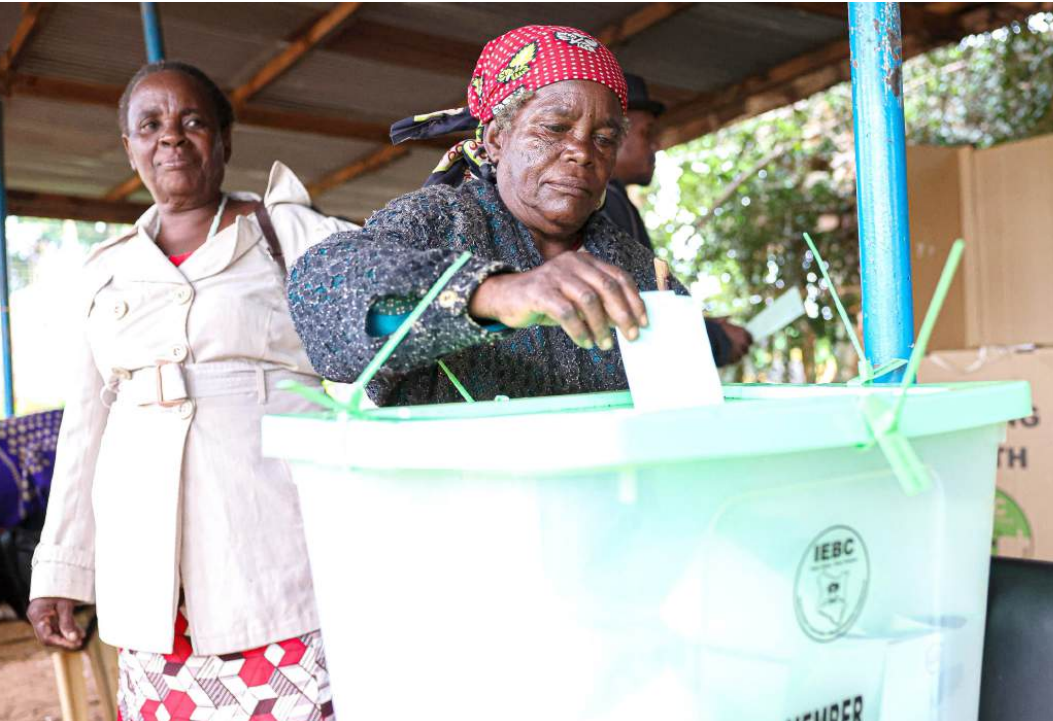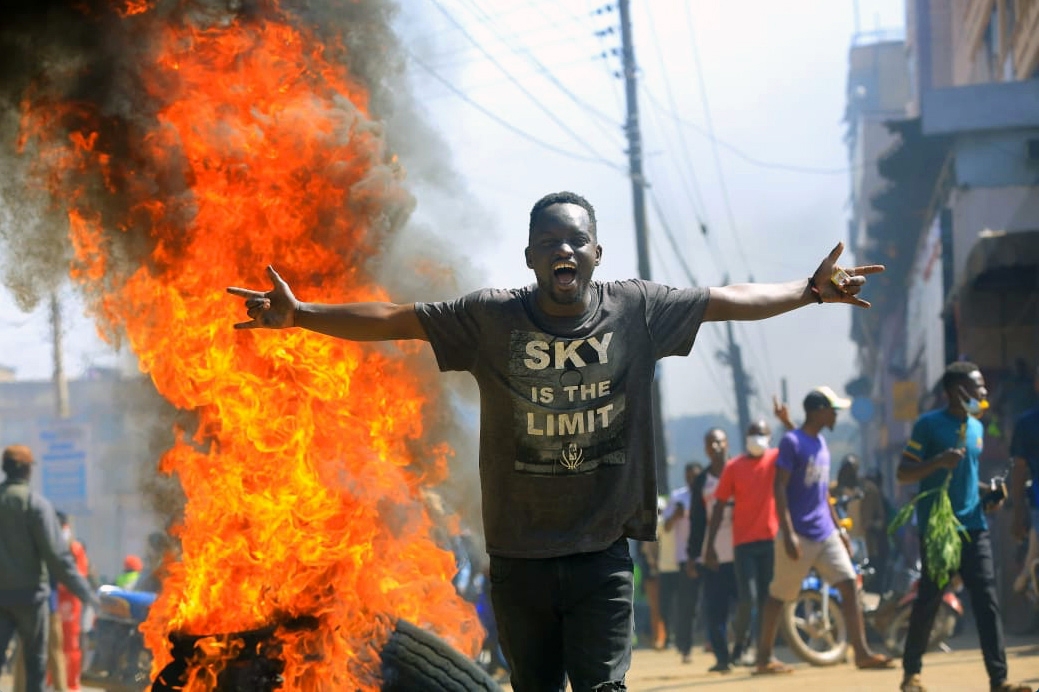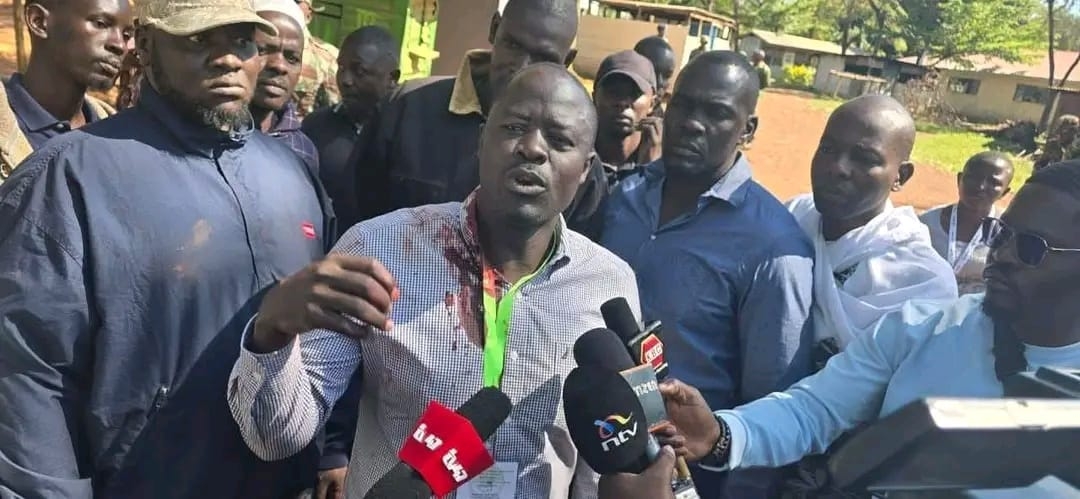

Violence, intimidation and allegations of electoral malpractice marked Thursday’s by-elections, offering an early and unsettling glimpse into the tensions that could shape the 2027 polls as political leaders compete for influence.
Across several regions, people were injured and property damaged as confrontations escalated throughout the day, particularly in four closely watched constituencies.
Malava, Mbeere North, Kasipul and Magarini—areas viewed as indicators of the national political climate—experienced the most severe disruptions.
In Malava, unrest began early and intensified steadily. Several vehicles were damaged, with some set on fire in incidents residents attributed to organised groups aiming to intimidate rival supporters. Among the destroyed vehicles was a Toyota Prado linked to DAP-K leader Eugene Wamalwa, according to residents at the scene.
DAP-K candidate Seth Panyako alleged that security officers failed to respond as unidentified individuals targeted him overnight, injuring his agents and damaging property. His team also raised concerns about the accuracy of the voter register after Panyako found himself assigned to a different stream from the one he previously used, a change he said had not been communicated.
In Mbeere North, UDA candidate Leonard Wa Muthende expressed concern about security after groups he described as hostile were seen near polling centres. “When people walk with large groups to a polling station, it raises questions about their intentions,” he said.
In the same constituency, former Public Service CS Justin Muturi was filmed in a heated exchange with individuals identified by onlookers as UDA agents. Tensions rose when Muturi objected to a polling agent wearing a yellow jacket, which he argued constituted unauthorised party attire under election rules. Muturi and his supporters escorted the agent out of the polling station, leading to verbal clashes before police intervened.
In Kasipul, violence escalated when Homa Bay Town MP Peter Kaluma was injured during a confrontation involving supporters of independent candidate Philip Aroko. Kaluma, acting as chief agent for ODM candidate Boyd Were, was caught in a dispute that quickly grew chaotic. His bodyguard’s firearm was reported missing during the commotion, prompting police involvement at Agoro Sare Primary School. Although officers restored order, tensions persisted throughout the day. The constituency had previously witnessed unrest earlier in the month during clashes between the two camps.
In Nyamira’s Nyansiongo ward, rival groups also clashed before security forces restored calm. Residents described sudden confrontations near polling centres that required police intervention.
In Machakos, former MCA Paul Musengu was confronted by residents who accused him of attempting to bribe voters. Witnesses said the disagreement intensified rapidly, forcing Musengu to leave the area as tensions rose.
The violence drew strong reactions from political leaders, who warned that the disturbances could signal dangers ahead of the 2027 elections. Siaya Senator James Orengo said the events showed how fragile the country’s electoral environment remained. “We cannot progress if, years after the 2010 Constitution, we still struggle to hold peaceful and fair elections,” he said on X. He cautioned against what he termed the increasing militarisation of campaigns.
Jubilee secretary general Jeremiah Kioni described the by-elections as a possible indication of future challenges. He questioned whether authorities were adequately prepared to ensure safety and fairness. Kioni also criticised institutions involved in the electoral process, saying they should ensure full accountability.
Suba North MP Millie Odhiambo also expressed concern, noting that the level of violence in several constituencies risked eroding public confidence in the process. “The violence being reported is unacceptable and threatens the credibility of the vote,” she said.
ODM secretary general Edwin Sifuna attributed the unrest to what he viewed as shortcomings in security coordination. He argued that authorities should act decisively to prevent violence from influencing electoral outcomes.
The tensions did not emerge solely on election day. In the weeks leading up to the polls, several areas had already recorded clashes. In Kabuchai, Bungoma county, the convoy of Trans Nzoia Governor George Natembeya was attacked during a campaign event for a DAP-K candidate, leaving people injured and vehicles damaged. Opposition leaders criticised the incident and called for investigations.
In Siaya’s Ugunja constituency, an ODM campaign turned violent after disagreements among rival factions, leading to injuries from gunfire. Police launched inquiries into the circumstances surrounding the clashes.
In Magarini, ODM candidate Harrison Kombe said some of his agents were denied access to polling stations, raising concerns about procedural fairness. The constituency has been under increased scrutiny since the Supreme Court nullified the 2022 results.
By election day, several regions had already become highly charged, with both local grievances and national-level politics contributing to heightened tensions. Although the races were local, they drew national figures from major political formations, transforming the contests into broader political tests. Analysts viewed the by-elections as an indicator of the strength of emerging alliances aligned with key political leaders.
Reports from various areas highlighted differing forms of disruption, including intimidation, physical altercations, arrests and disputes over access to polling centres.
As tensions grew, the Independent Electoral and Boundaries Commission faced renewed scrutiny over its capacity to manage the environment. IEBC officials urged political actors to refrain from unverified claims that could fuel uncertainty.
The commission reminded candidates that violations of electoral rules could lead to sanctions, including fines or disqualification.
Critics, however, argued that the commission needed stronger mechanisms to ensure order and uphold confidence in the process.
Earlier clashes in Kasipul had already led to fatalities, prompting the IEBC to fine both leading candidates Sh1 million each in an effort to deter further confrontations. Despite the sanctions, mistrust between supporters remained high, with each side accusing the other of provoking tension.
Across the country, security agencies said they deployed extra officers to areas considered vulnerable. Police said the deployment aimed to maintain calm. Community leaders in affected regions urged authorities to adopt more preventive measures to ensure the safety of voters and election officials.
Civil society groups monitoring the by-elections called for thorough investigations into all incidents of violence and intimidation. They argued that accountability would help discourage similar conduct in future polls. Election observers also emphasised the need for strengthened voter education, especially regarding the roles of agents and security personnel, to minimise disputes.
As tallying continued into the evening, officials stressed transparency, while political leaders appealed for calm and urged supporters to await the final results.

















